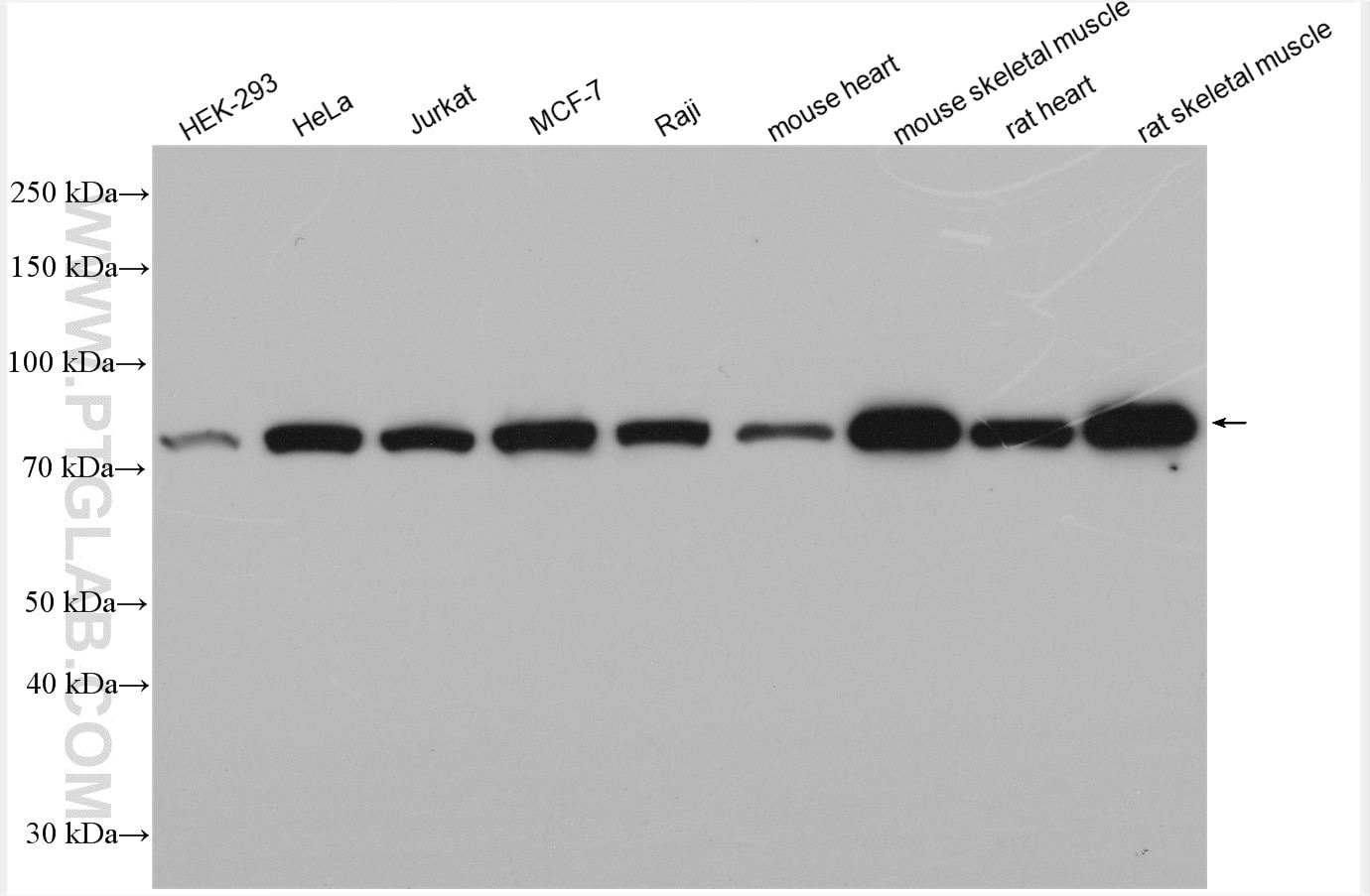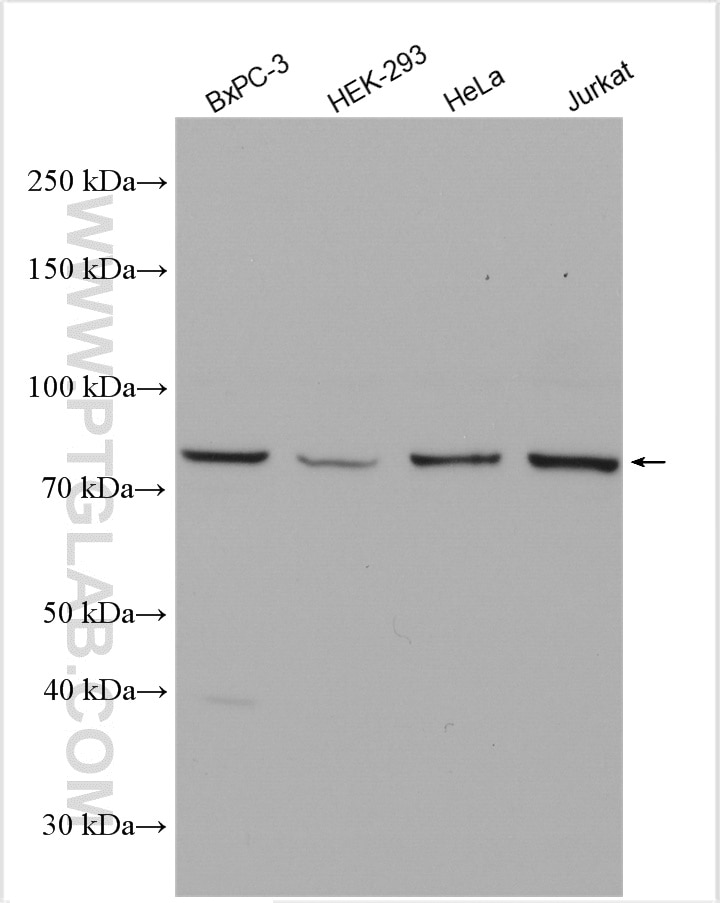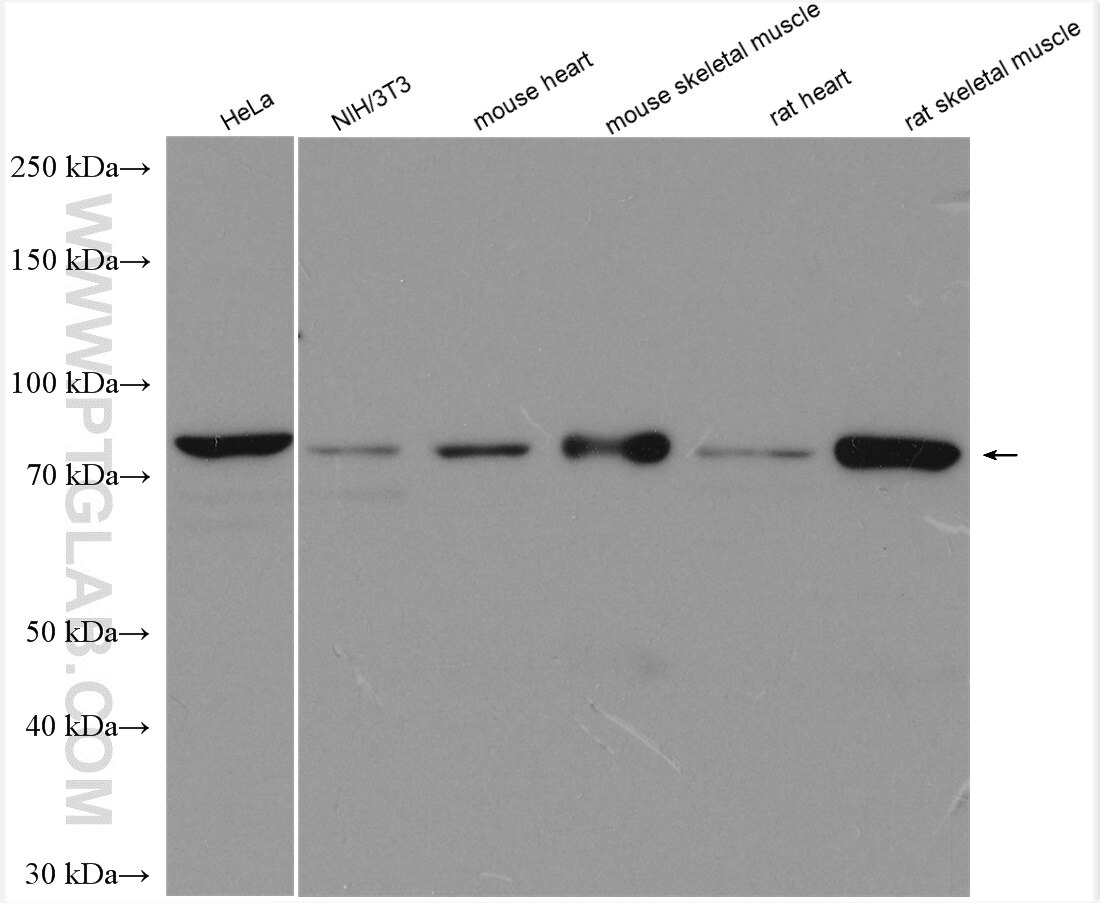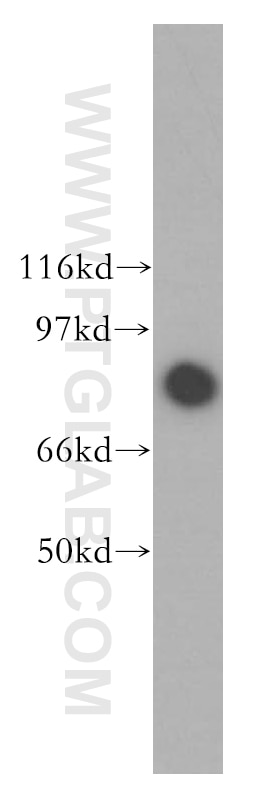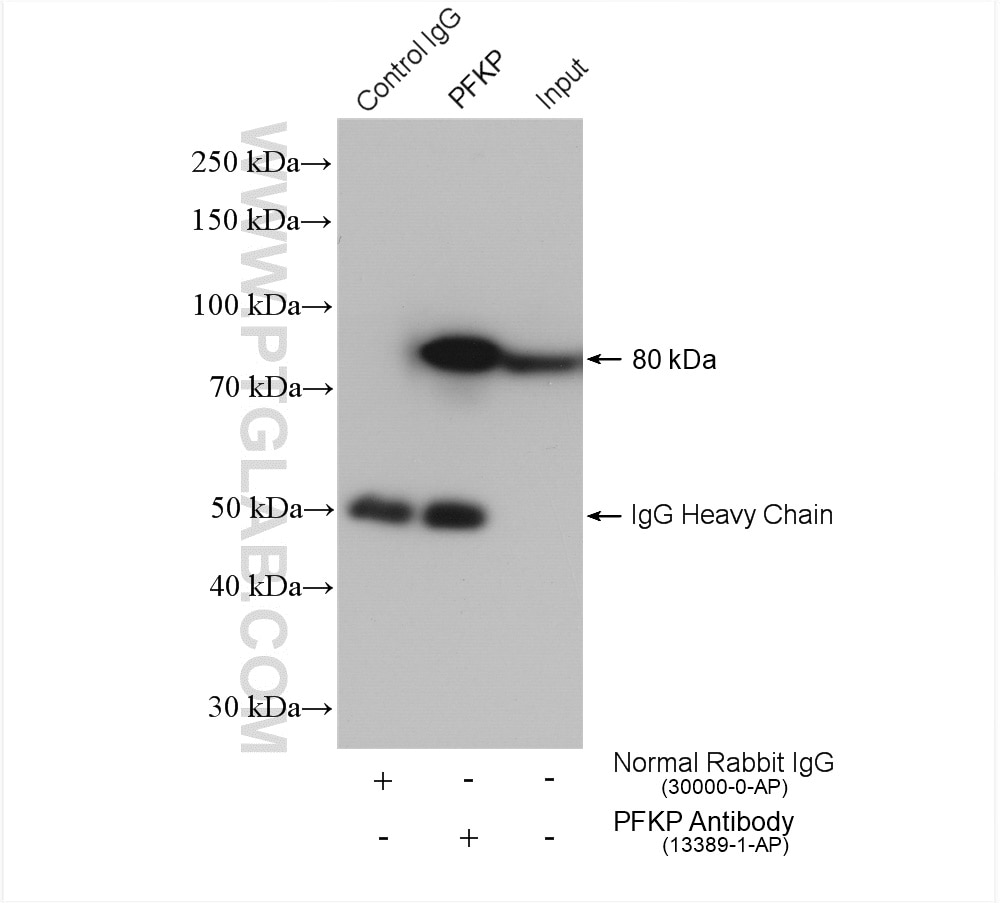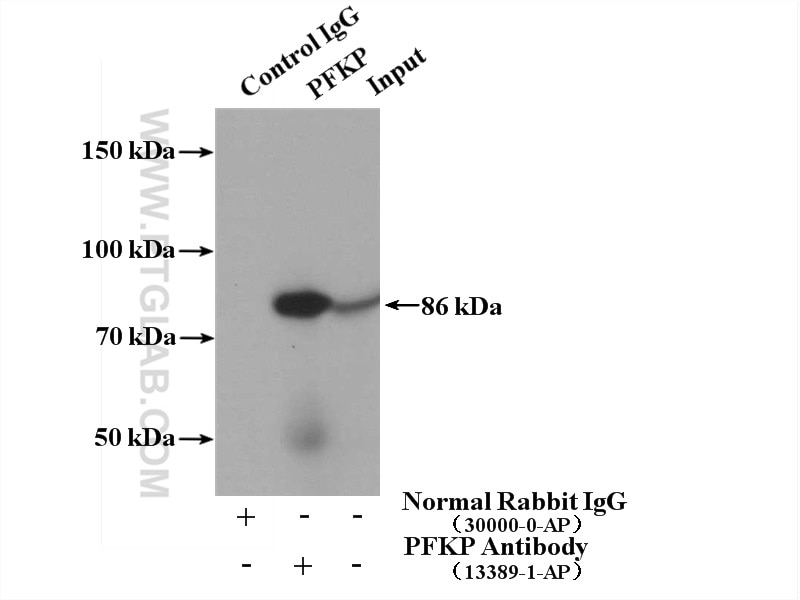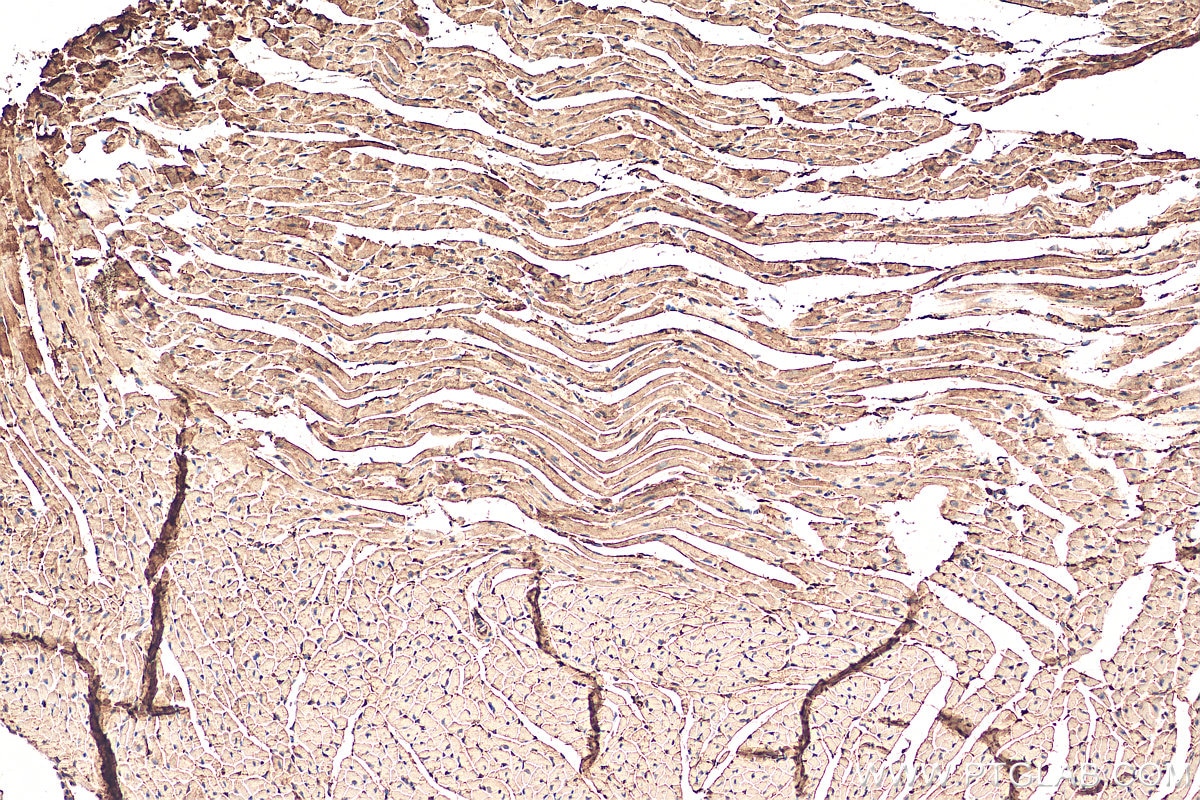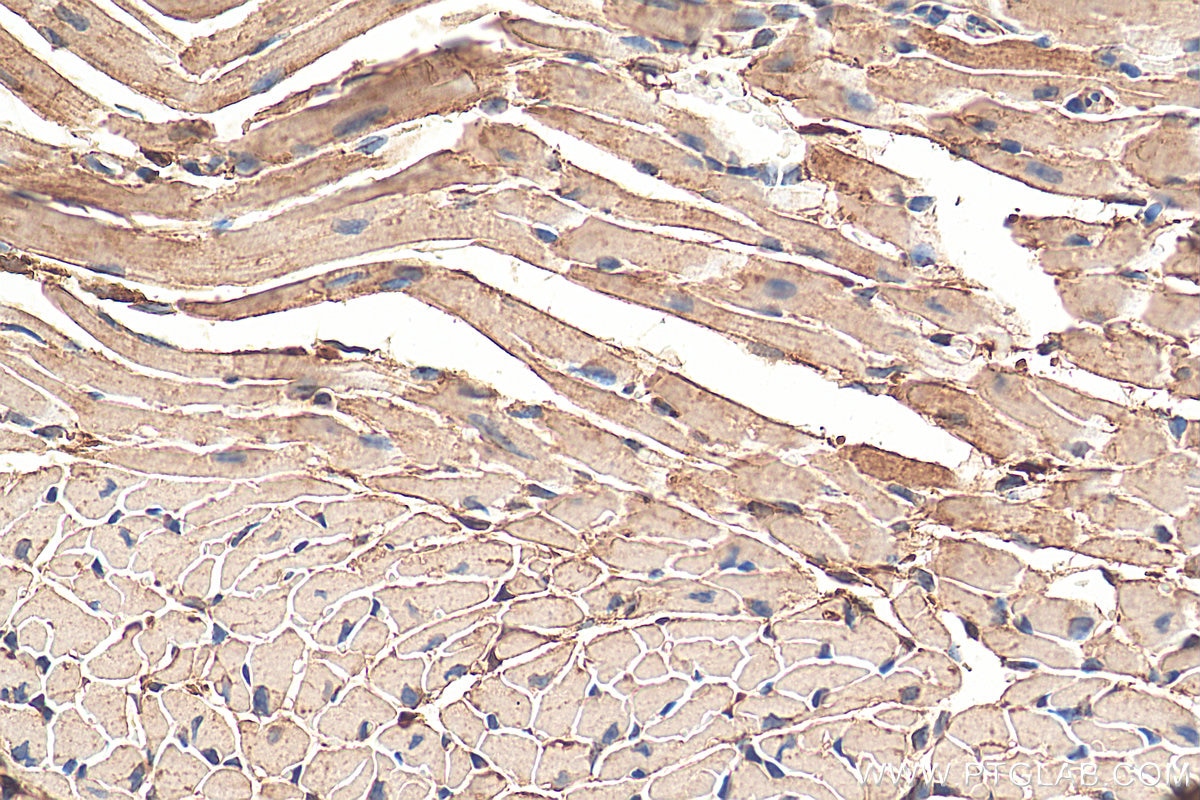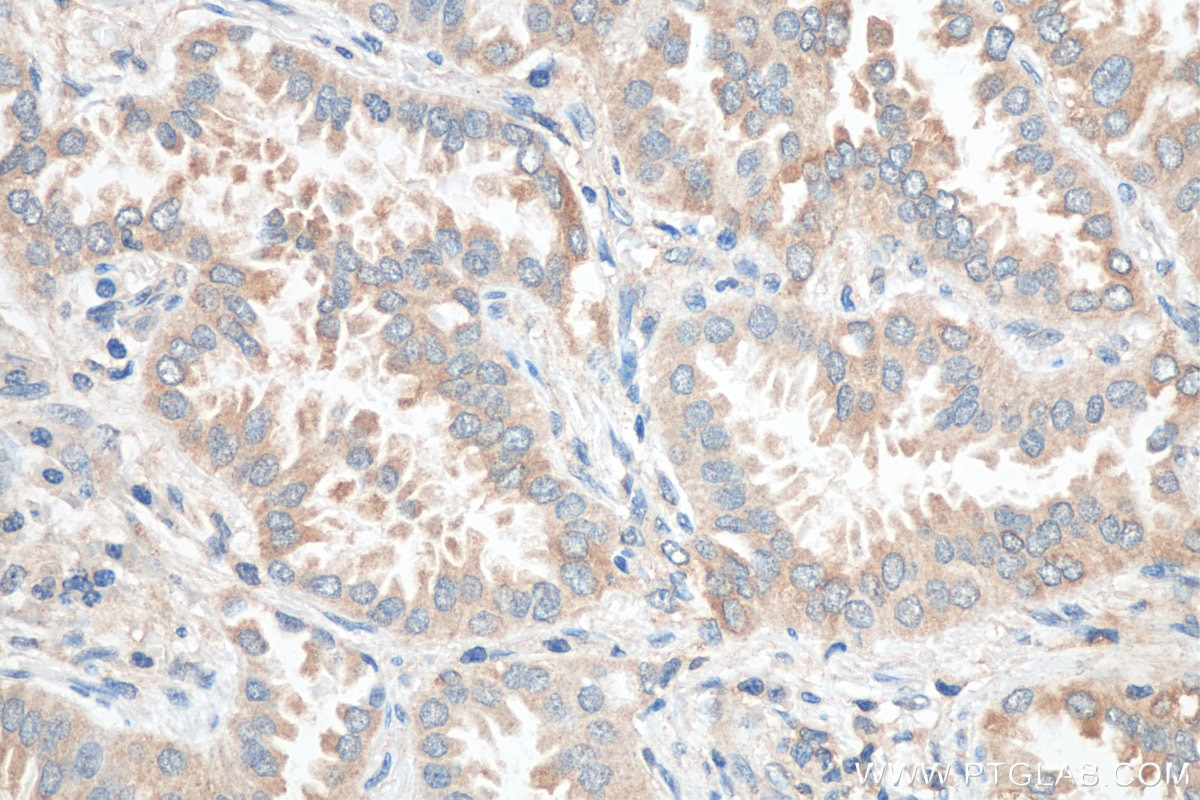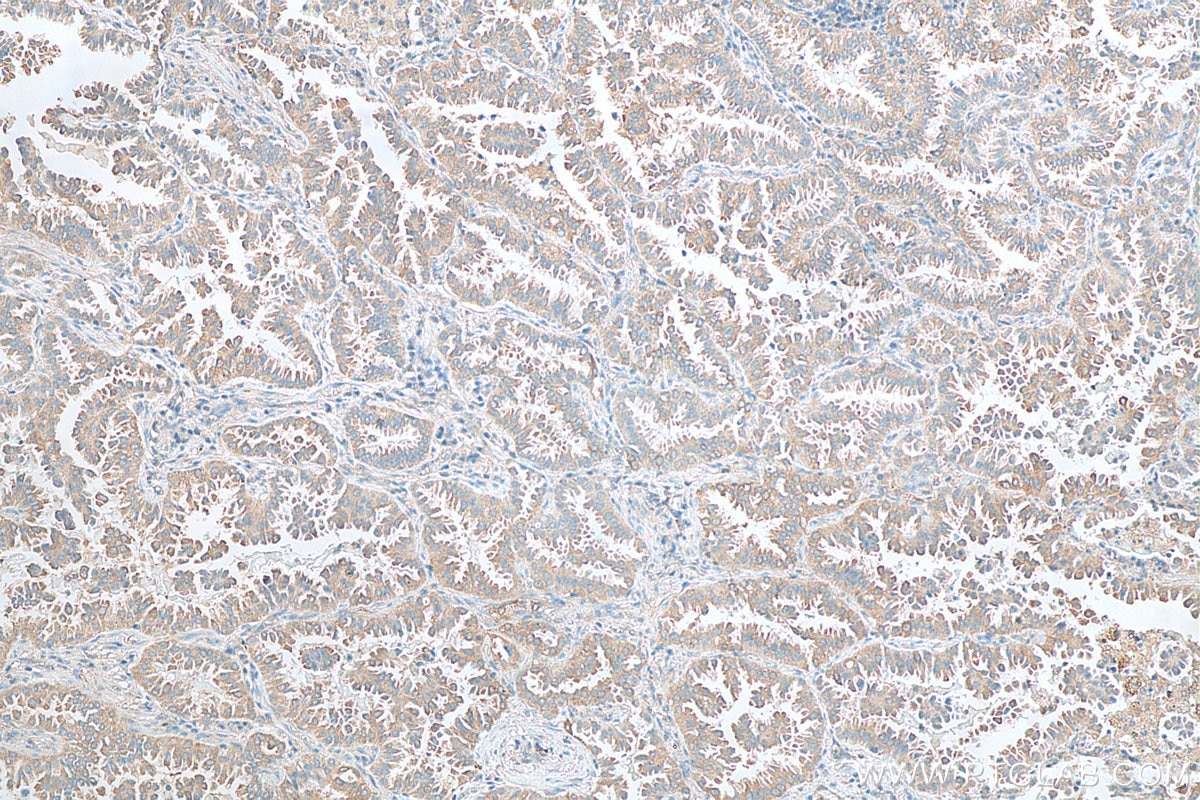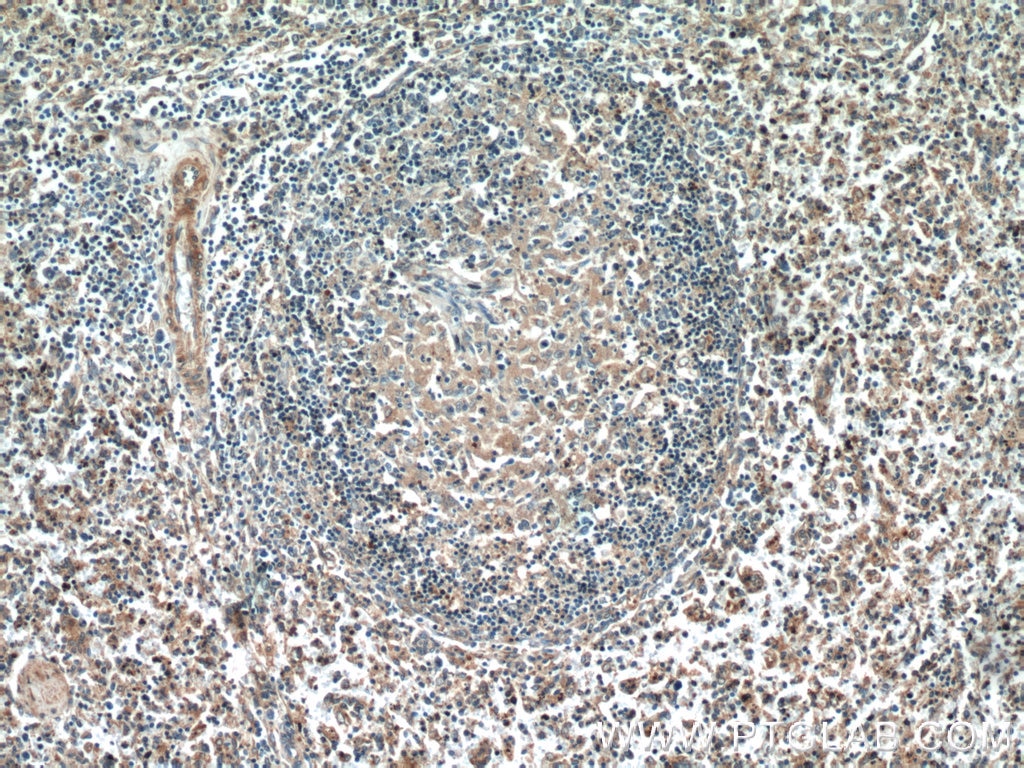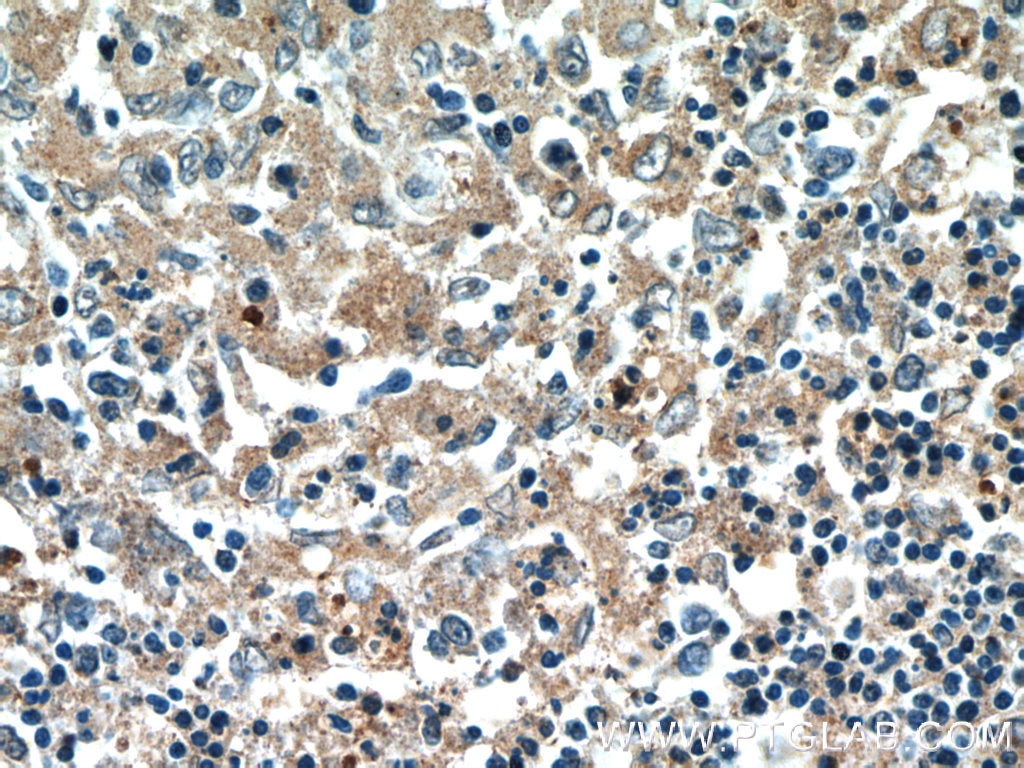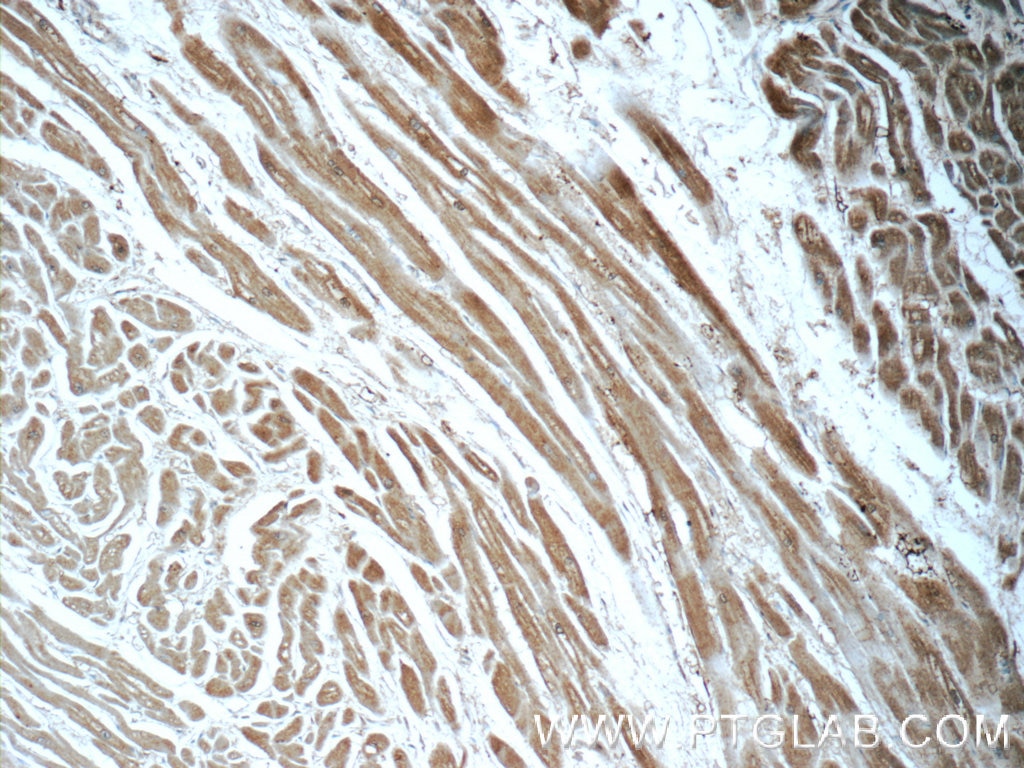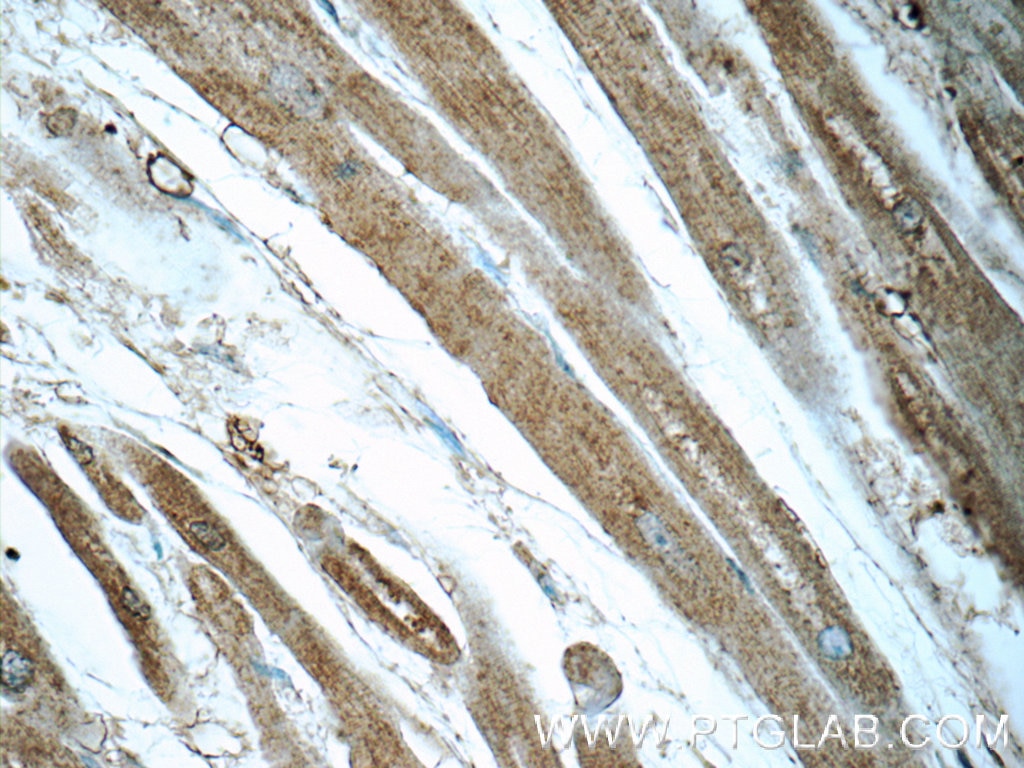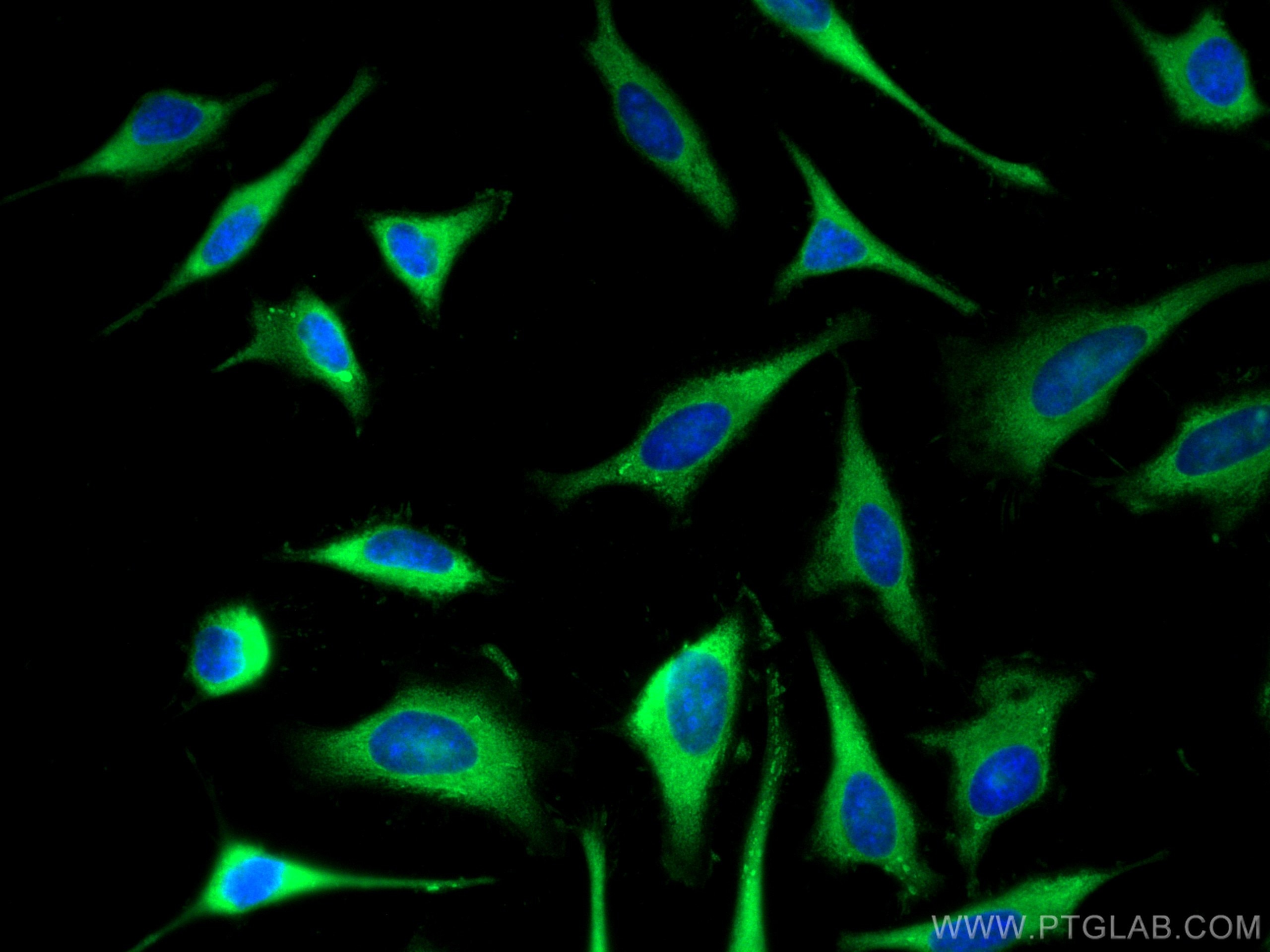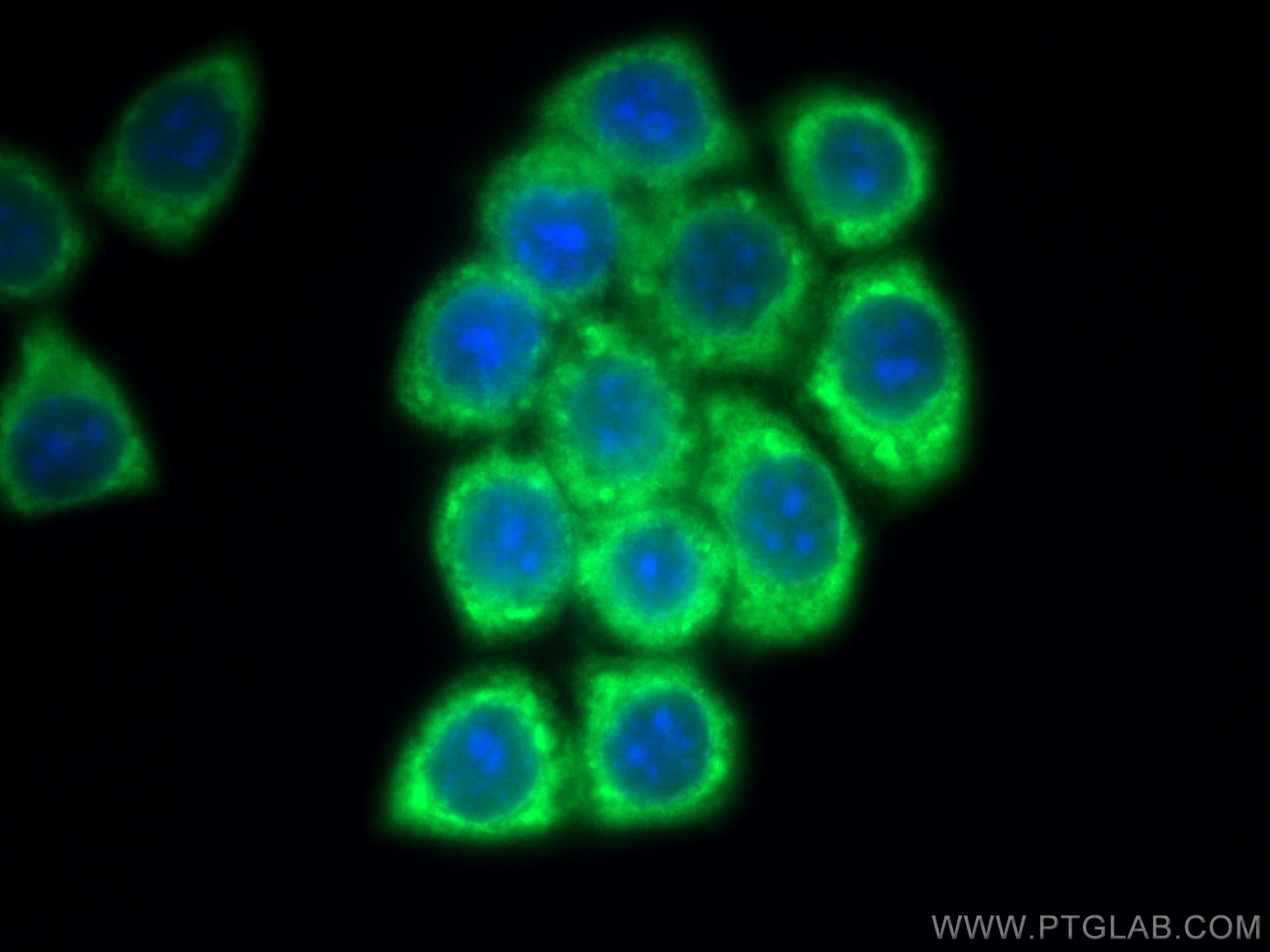- Featured Product
- KD/KO Validated
PFKP Polyklonaler Antikörper
PFKP Polyklonal Antikörper für WB, IHC, IF/ICC, IP, ELISA
Wirt / Isotyp
Kaninchen / IgG
Getestete Reaktivität
human, Maus, Ratte
Anwendung
WB, IHC, IF/ICC, IP, ELISA
Konjugation
Unkonjugiert
Kat-Nr. : 13389-1-AP
Synonyme
Galerie der Validierungsdaten
Geprüfte Anwendungen
| Erfolgreiche Detektion in WB | HEK-293-Zellen, BxPC-3-Zellen, HeLa-Zellen, humanes Herzgewebe, Jurkat-Zellen, Mausherzgewebe, Maus-Skelettmuskelgewebe, MCF-7-Zellen, NIH/3T3-Zellen, Raji-Zellen, Rattenherzgewebe, Ratten-Skelettmuskelgewebe |
| Erfolgreiche IP | Jurkat-Zellen, Mausherzgewebe |
| Erfolgreiche Detektion in IHC | Mausherzgewebe, humanes Herzgewebe, humanes Lungenkarzinomgewebe, humanes Milzgewebe Hinweis: Antigendemaskierung mit TE-Puffer pH 9,0 empfohlen. (*) Wahlweise kann die Antigendemaskierung auch mit Citratpuffer pH 6,0 erfolgen. |
| Erfolgreiche Detektion in IF/ICC | HeLa-Zellen, BxPC-3-Zellen |
Empfohlene Verdünnung
| Anwendung | Verdünnung |
|---|---|
| Western Blot (WB) | WB : 1:2000-1:16000 |
| Immunpräzipitation (IP) | IP : 0.5-4.0 ug for 1.0-3.0 mg of total protein lysate |
| Immunhistochemie (IHC) | IHC : 1:50-1:500 |
| Immunfluoreszenz (IF)/ICC | IF/ICC : 1:50-1:500 |
| It is recommended that this reagent should be titrated in each testing system to obtain optimal results. | |
| Sample-dependent, check data in validation data gallery | |
Veröffentlichte Anwendungen
| KD/KO | See 1 publications below |
| WB | See 23 publications below |
| IHC | See 4 publications below |
| IF | See 2 publications below |
| IP | See 1 publications below |
Produktinformation
13389-1-AP bindet in WB, IHC, IF/ICC, IP, ELISA PFKP und zeigt Reaktivität mit human, Maus, Ratten
| Getestete Reaktivität | human, Maus, Ratte |
| In Publikationen genannte Reaktivität | human, Maus, Ratte |
| Wirt / Isotyp | Kaninchen / IgG |
| Klonalität | Polyklonal |
| Typ | Antikörper |
| Immunogen | PFKP fusion protein Ag4047 |
| Vollständiger Name | phosphofructokinase, platelet |
| Berechnetes Molekulargewicht | 784 aa, 86 kDa |
| Beobachtetes Molekulargewicht | 80-86 kDa |
| GenBank-Zugangsnummer | BC029138 |
| Gene symbol | PFKP |
| Gene ID (NCBI) | 5214 |
| Konjugation | Unkonjugiert |
| Form | Liquid |
| Reinigungsmethode | Antigen-Affinitätsreinigung |
| Lagerungspuffer | PBS mit 0.02% Natriumazid und 50% Glycerin pH 7.3. |
| Lagerungsbedingungen | Bei -20°C lagern. Nach dem Versand ein Jahr lang stabil Aliquotieren ist bei -20oC Lagerung nicht notwendig. 20ul Größen enthalten 0,1% BSA. |
Hintergrundinformationen
PFKP(6-phosphofructokinase, platelet type) is also named as PFKF, PFK-C and belongs to the phosphofructokinase family. This form of PFK is best called the 'platelet' type and symbolized PFKP because it is the only form made by platelets, whereas fibroblasts have more than one form of PFK (Francke (1983)). PFK catalyzes the irreversible conversion of fructose-6-phosphate to fructose-1,6-bisphosphate and is a key regulatory enzyme in glycolysis. The observed molecular weight of PFKP monomer is 80-86 kDa. The molecular mass of PFKP dimer is 171 kDa (PMID: 28607489).
Protokolle
| Produktspezifische Protokolle | |
|---|---|
| WB protocol for PFKP antibody 13389-1-AP | Protokoll herunterladen |
| IHC protocol for PFKP antibody 13389-1-AP | Protokoll herunterladen |
| IF protocol for PFKP antibody 13389-1-AP | Protokoll herunterladen |
| IP protocol for PFKP antibody 13389-1-AP | Protokoll herunterladen |
| Standard-Protokolle | |
|---|---|
| Klicken Sie hier, um unsere Standardprotokolle anzuzeigen |
Publikationen
| Species | Application | Title |
|---|---|---|
Cell Res Mannose antagonizes GSDME-mediated pyroptosis through AMPK activated by metabolite GlcNAc-6P | ||
Cell Metab Augmentation of scleral glycolysis promotes myopia through histone lactylation | ||
Mol Cell R-2-hydroxyglutarate attenuates aerobic glycolysis in leukemia by targeting the FTO/m6A/PFKP/LDHB axis.
| ||
Stem Cell Reports The Long Noncoding RNA Lncenc1 Maintains Naive States of Mouse ESCs by Promoting the Glycolysis Pathway. | ||
Acta Pharmacol Sin Bmal1 inhibits phenotypic transformation of hepatic stellate cells in liver fibrosis via IDH1/α-KG-mediated glycolysis. |
